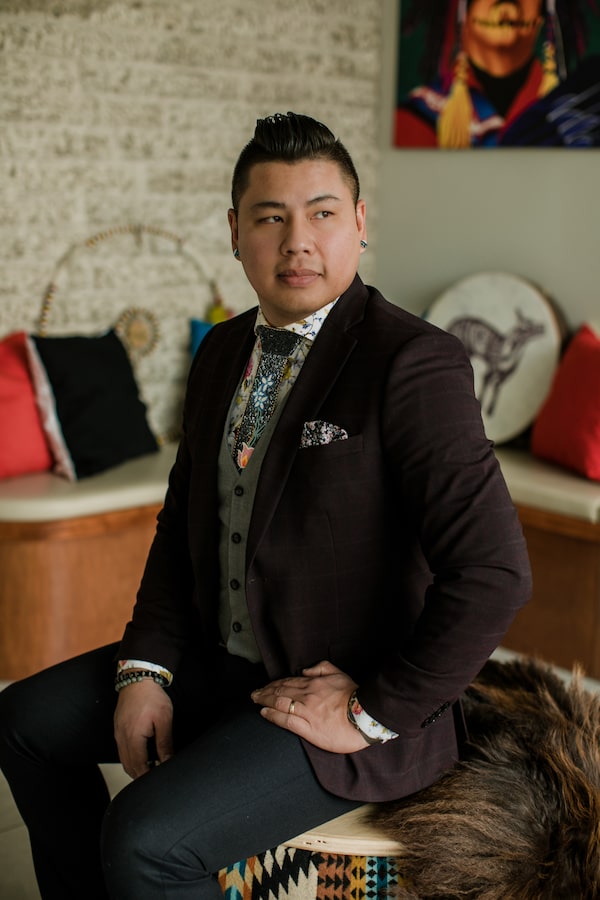
Tenille K Campbell/The Globe and Mail
Canada’s ongoing reconciliation effort with Indigenous people has so far taken myriad forms, many symbolic: a commissioned report, formal apologies from government and growing public awareness around the issue of land rights. But, as it is understood by many leaders in the Indigenous community, reconciliation will be fundamentally incomplete without economic influence and the ability to establish livelihoods for current and future generations.
With that in mind, in 2010, FHQ Developments was founded by the 11-member First Nations communities of File Hills Qu’Appelle Tribal Council, which represents over 15,000 First Nations citizens and 435,000 acres of reserve lands in Treaty 4 territory (encompassing much of southern Saskatchewan). The alliance’s primary purpose is to build Indigenous wealth and all that entails: equity ownership, the development and prosperity of Indigenous businesses and workers, and crucially, partnership with non-Indigenous businesses to create a pipeline to capital and leadership.
At the helm is 35-year-old Thomas Benjoe, a member of the Muscowpetung First Nation. Benjoe, who attended the University of Regina and worked as a commercial account manager for RBC prior to his FHQ tenure, admits he’s always been a “big-picture person,” one with an expansive mission in mind: to advance Indigenous prosperity, not only for the 11 nations he serves as FHQ’s president and CEO, but for all nations.
Benjoe was inspired to take a commerce-oriented path in his teens after reading a magazine that highlighted the story of a successful Indigenous CEO. “I really wanted to be that guy,” he laughs. “I always associated success with economics, but I wanted to do it in a way that brought prosperity to the community, too.”
In his four short but rigorous years in leadership, Benjoe seems to have smashed one ceiling only to come up against another. “There have always been issues around proper participation of Indigenous businesses in the Saskatchewan economy,” he says. “What I kept hearing were all the reasons it wasn’t working.” Benjoe set out to connect the dots early on, meeting with key provincial stakeholders in the private and public sectors, and business leaders in the Indigenous community. He’s also dedicated significant effort toward lobbying for Indigenous procurement at the federal level. (Last year, the Trudeau government announced plans to allocate 5% of its total capital spending to Indigenous businesses.)
One of Benjoe’s most transformational projects has been the creation of an Indigenous Engagement Charter, which sprung from a 90-day task force co-led by Benjoe in his role at the Saskatchewan Chamber of Commerce. “We wanted to get the non-Indigenous business community to support the Indigenous side,” he says. “The charter provides resources for how to engage the two.” Included in the charter are awareness training, an Indigenous business directory, resource plans to support Indigenous procurement and workforce acquisition, and community outreach guidelines for non-Indigenous enterprises, large and small.
Benjoe says one of the most stubborn barriers facing his community is unconscious bias, whether it’s manifested in the overrepresentation of Indigenous workers in part-time and temporary roles, or a frustratingly diffuse belief held by higher-ups in the “lack of ability [of Indigenous workers] to do certain jobs.”
In facing such systemic prejudice, Benjoe says, his biggest asset has been his ability to listen. “I work with a number of CEOs, and if you see me in those rooms, I’m always the last to speak,” Benjoe says. “I try to build an understanding of why they haven’t made policy changes [to encourage Indigenous employment], and I try to give them a safe space to explain why that is. We try to come from a good place and let them be honest, because sometimes they’re a bit embarrassed. I’m not so quick to propose a solution but to find the key issues and then build consensus. Some days are very frustrating, so it requires a lot of patience.”
Benjoe says when he does speak, he builds trust by focusing on the foundation of the Indigenous value system: community, or “how we build wealth and create successful businesses without forgetting the people.” In fact, for Benjoe, and FHQ more broadly, business practices are inextricable from the core teachings of the Nehiyaw (Cree), Dakota, Nakota, Lakota and Anishinaabe (Saulteaux) First Nations they serve: Miyo-wîcêhtowin (or “the principle of getting along well with others, having good relations and expanding the circle”), Wîtaskêwin (“living together on the land”) and Pimâcihowin (“making a living”), among others.
Always looking forward, Benjoe notes that roughly a third of all Saskatchewan youth under 18 are Indigenous. “If we don’t do something to better allow them to participate in the economy,” he says, “we’re going to have a pretty serious issue on our hands.” For his part, Benjoe dedicates a portion of his time to youth mentorship, as well as advocating specifically for opportunities for female entrepreneurs. Recently, FHQ partnered with the Matchstick program, led by Women Entrepreneurs of Saskatchewan, which provides support to First Nations, Métis and Inuit women interested in pursuing their own initiatives.
“We’re taught to look seven generations ahead in terms of the things we try to accomplish,” says Benjoe, for whom collective values and wealth creation are not—and have never been—mutually exclusive. “I take a lot of advice from elders in our communities. We’re all gifted in the way we think and the way we learn, and all I’m doing is taking those gifts and trying to change the world around me—and make things better for the youth coming up.”
Your time is valuable. Have the Top Business Headlines newsletter conveniently delivered to your inbox in the morning or evening. Sign up today.